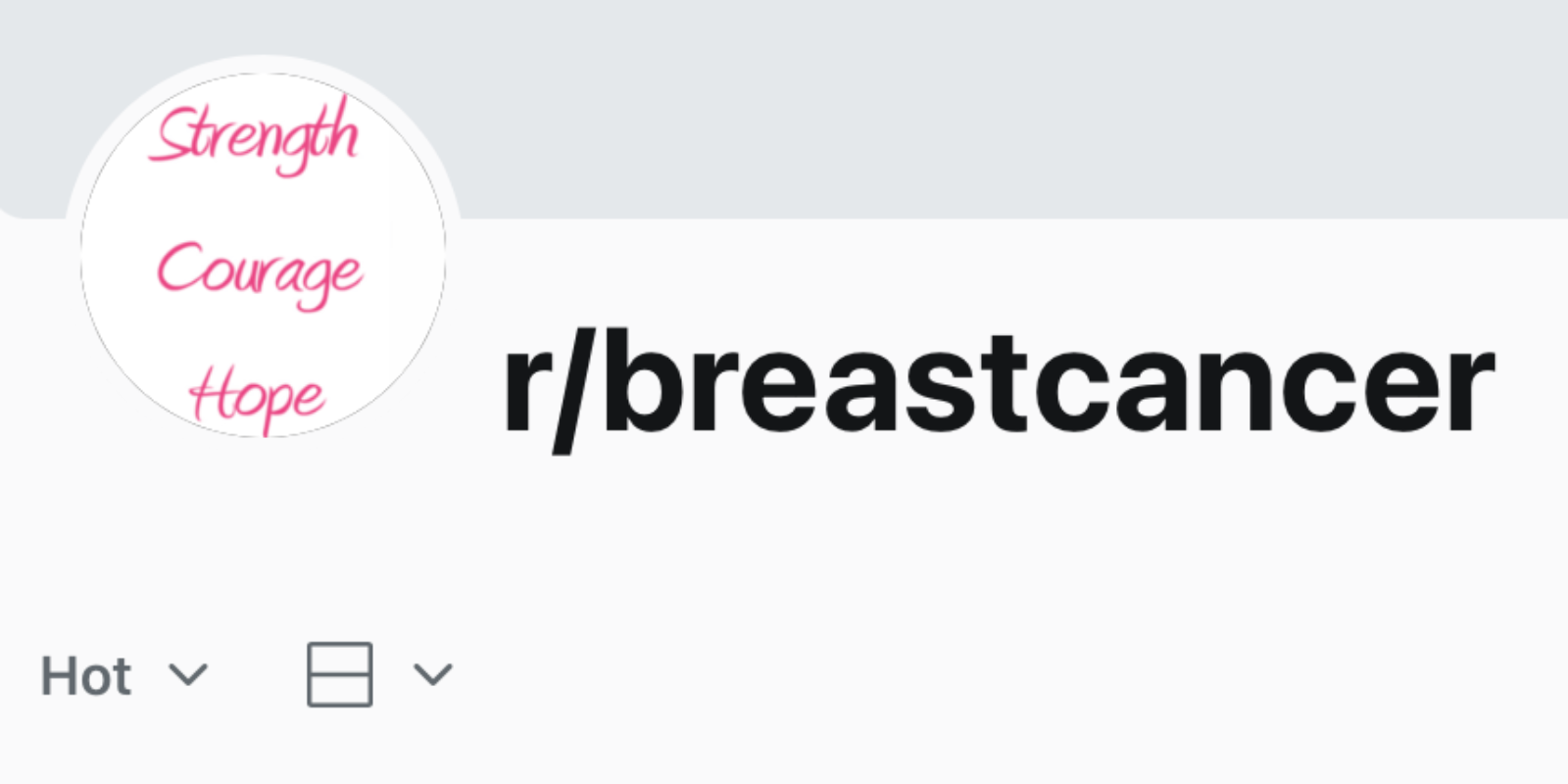Two research studies overseen by University of Colorado Cancer Center member Sarah Tevis, MD, investigate how breast cancer patients are using social media and other digital tools for support and information about their diagnosis and treatment.
Reddit as support group
Presented in November 2024 at the American College of Surgeons Clinical Congress, a research paper authored by CU School of Medicine student Jessie Jiang analyzed breast cancer-related posts on the social media site Reddit. A research team overseen by Tevis looked at the top 1,000 posts from the past year in the r/breastcancer subreddit and sorted them into such topics as advice, affirmation, venting, solidarity, and motivation.
“We were curious to see what patients were talking about in a completely anonymous environment,” says Tevis, associate professor of surgery in the CU School of Medicine. “We initially looked at how well what they were talking about aligned with some of the patient-reported outcomes that we commonly measure, but we also found that the Reddit community was almost like a support group for these patients — they were coming there for information, but also to get that social support, which we thought was interesting.”
Sense of solidarity
An analysis of the top posts showed that the Redditors valued receiving advice and affirmation from other patients, Tevis says, as well as having the ability to vent and say what was on their mind.
“They felt like other patients helped motivate them either to continue with their treatment or to take care of themselves, and they also felt a sense of solidarity being part of that group,” she says.
The findings could impact the well-being support offered to CU Cancer Center patients in the future, especially around financial and emotional support, which were two of the most-discussed topics in the Reddit posts, Tevis says.
“We saw that users were talking about relationships — spouses and children — and feeling separated or lonely or frightened about what was going to happen to them and their family,” she says.
Life after treatment
Another impactful finding from the Reddit research, Jiang says, is that around 10% of posts discuss completion of treatment or life in remission.
“This implies that breast cancer survivors have continued needs after completion of treatment and could still benefit from support,” she says. “Even in this phase of survivorship, patients experience anxiety and fear of recurrence, something that we are beginning to study.”
Jiang says she and her fellow researchers may extend their analysis of Reddit posts to include comments and responses to see what answers or resources are provided within the online forum.
“It would be interesting to assess r/breastcancer for accuracy of content and how it aligns with current guidelines,” she adds. “It would also be important to compare topics discussed on Reddit and how they compare to the concerns of our patients in clinic.”
What ChatGPT gets wrong
In a similar study overseen by Tevis and authored by Jakob Durden, MD, a resident in the CU Department of Surgery, researchers queried the generative artificial intelligence tool ChatGPT to see what surgical recommendations it would give for breast cancer patients at certain ages and with specific diagnoses.
“We were really interested in knowing what ChatGPT would recommend for lymph node surgery, because that's something that's been evolving over time,” Tevis says. “We are doing less and less lymph node surgery, and we have well-recognized guidelines for the clinical scenarios that Jakob used. He was looking to see if, in these very clear-cut cases, ChatGPT would recommend the correct axillary surgery — and it didn’t do a very good job.”
Not only that, Durden says, but even when asked to cite its sources, the program would either ignore the request altogether or provide nonfunctional weblinks, making it difficult for a hypothetical patient to check the accuracy of the information provided.
Helping patients interpret test results
The research is especially important to conduct now, Durden says, because recent regulation changes mean that patients typically receive test results before having the chance to review them with their clinical team. Many then turn to tools such as ChatGPT for more information.
“When dealing with new diagnoses, the first place people seem to turn is the internet, which is undoubtedly a huge repository of information, but figuring out which aspects to trust can be very challenging,” says Durden, who will present the research at the Society of Surgical Oncology’s annual meeting in March. “With the advent of open-access artificial intelligence such as ChatGPT, we wanted to better characterize the responses patients would receive if they were seeking information about treatment for their particular biopsy and mammography results to simulate real-world use of these new resources.”
Tevis says the findings emphasize the need for providers to point patients to accurate sources of information online. She, Durden, and other researchers also are developing an internet-compatible tool designed to provided clinician-vetted information and additional weblinks for patients who want assistance interpreting their results.
“We know our patients are using technology more and more,” she says. “Taken together, these studies show that sites like Reddit are potentially beneficial for patients to gain a sense of community, with the caveat that the information quality from tools such as ChatGPT may not be adequate for education about their diagnosis and treatment.”



